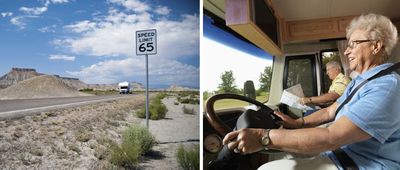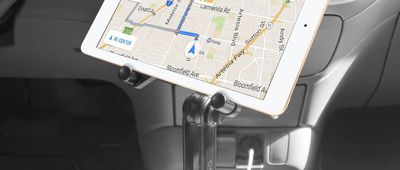Lost in Space
It’s the time of year everyone starts dreaming of hitting the open road for an RV vacation. In fact, as I write this, I am en route to the Oregon coast in the Class A motorhome my husband and I live in full time (don’t worry — I’m the passenger). As a newcomer, your dreams may differ from the reality of what vacations in a recreational vehicle are really like. Avoid bumps in the road and ensure a successful trip by first mastering your packing and organizing.
Related: Things New RV Owners Wished They'd Known Before Buying That RV



































